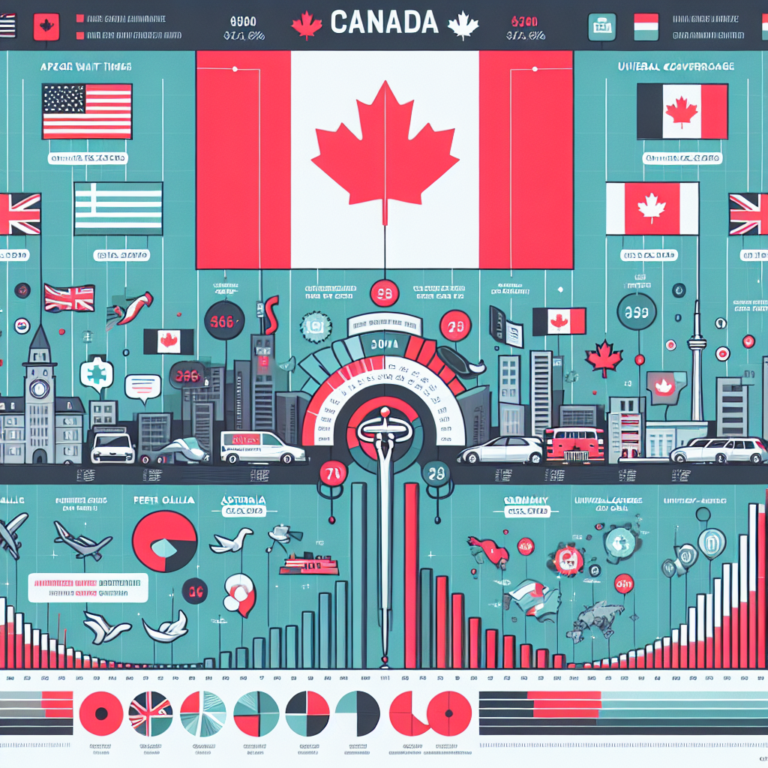Improving Access to Healthcare in Canada
Canada is renowned for its universal healthcare system, a source of national pride that ensures all Canadian citizens and permanent residents have access to necessary medical services without direct out-of-pocket costs. However, “access” remains a complex issue, with disparities based on geography, socio-economic status, and even immigration status. In this article, we’ll delve into the various facets of healthcare in Canada and explore how access can be improved for every resident, including immigrants.
Understanding the Canadian Healthcare System
The Basics of Healthcare in Canada
The Canadian healthcare system, known as Medicare, is a group of socialized health insurance plans that provide coverage to all Canadian citizens and permanent residents. The system is funded through taxes and administered on a provincial or territorial basis, within guidelines set by the federal government.
While the system covers a wide range of services, it doesn’t cover everything. Prescription drugs, dental care, and vision care are not fully covered, often necessitating private health insurance or out-of-pocket payment, particularly for non-emergency services.
Is Healthcare Truly Free in Canada?
The term “free” can be misleading when discussing healthcare in Canada. While there is no charge at the point of service for many medical services, Canadians pay for healthcare through taxes. This means that while you may not receive a bill after seeing a doctor, you are contributing to the funding of the healthcare system as a taxpayer.
Addressing Access Issues
Even with universal coverage, accessing healthcare services can be a challenge for some Canadians. Wait times for certain procedures and specialist services can be long, and rural areas may lack the same level of care available in urban centers.
Challenges in Rural and Remote Communities
Canadians living in rural and remote areas often face difficulties in accessing healthcare due to the scarcity of medical facilities and healthcare professionals. These communities may not have a local hospital or may lack specialists, which can lead to increased travel time and expense for residents seeking care.
Improving Access for Immigrants
Immigrants to Canada, including refugees, may face additional barriers to accessing healthcare. Understanding eligibility, navigating the healthcare system, and language barriers can all pose challenges for newcomers.
The Role of Health Insurance for Immigrants
While permanent residents generally have access to the same healthcare benefits as Canadian citizens, there is a waiting period that can range from a few weeks to three months, depending on the province or territory. During this waiting period, health insurance becomes crucial to cover any medical needs that may arise.
For temporary residents, such as students or workers, health insurance is a necessity as they are not typically covered by Canadian Medicare. It is important for immigrants to understand their insurance options and secure appropriate coverage.
Is Healthcare Free in Canada for Immigrants?
The answer is nuanced. Permanent residents can access Medicare, but with the waiting period and certain services not covered, many immigrants choose to purchase supplementary health insurance. Temporary residents must often rely on private health insurance entirely.
How to Improve Healthcare Access for Immigrants
Simplifying the Eligibility Process
Streamlining the application and eligibility verification process can reduce the waiting period for immigrants to access healthcare services. This would involve a more efficient collaboration between federal and provincial systems to ensure new residents can receive timely care.
Enhancing Language Support Services
Offering interpretation and translation services within the healthcare system can significantly improve access for immigrants who may not be fluent in English or French, Canada’s two official languages.
Culturally Sensitive Care
Training healthcare providers in cultural competency can improve the quality of care for immigrants. Understanding diverse health beliefs and practices can lead to better patient-provider communication and more personalized care.
Strategies for Better Healthcare Access in Canada
Embracing Technology for Healthcare Delivery
Telehealth services have been a boon for patients in remote or underserved communities. By expanding these services, Canada can improve access to specialist care and reduce the need for long-distance travel for health consultations.
Increasing Healthcare Funding and Resources
Allocating more funds to healthcare and ensuring equitable distribution across all regions can help mitigate disparities. This could include building more facilities in rural areas and offering incentives for healthcare professionals to work in these locations.
Encouraging Preventative Care and Education
Focusing on preventive care through public health initiatives can reduce the overall burden on the healthcare system. Educating the population on healthy lifestyle choices can help avoid chronic illnesses that require extensive medical intervention.
The Road Ahead for Canadian Healthcare
Canada’s healthcare system is a model that many countries aspire to, but there is always room for improvement. Addressing the challenges of access, particularly for immigrants and residents of remote areas, is essential for the continued success and sustainability of the system.
By adopting innovative strategies and ensuring that every resident has the resources they need to navigate the healthcare landscape, Canada can set a global standard for equitable and comprehensive care.
Conclusion
Improving access to healthcare in Canada is a multifaceted issue that requires a concerted effort from government authorities, healthcare providers, and the community at large. As the country continues to welcome immigrants and grapple with the challenges of providing universal care, it must evolve its policies and practices to uphold the high standards of its healthcare system.
With strategic improvements in technology, funding, education, and policy, Canada can ensure that its healthcare system remains inclusive and accessible to all residents, regardless of their background or where they live.
For those navigating healthcare in Canada, understanding the intricacies of the system is key. While it may not be entirely free, especially for immigrants, the Canadian healthcare system strives to provide comprehensive care for all. As the system continues to improve, the hope is that every individual in Canada will experience the full benefits of a truly universal healthcare model.










